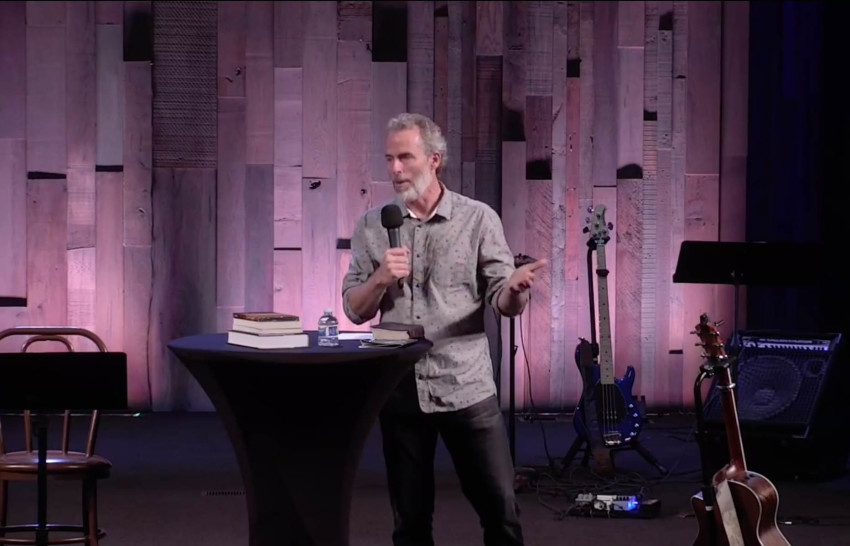California church won't have to pay $200K in fines for violating COVID-19 pandemic restrictions

An appellate court has ruled that a California church does not have to pay over $200,000 in fines for violating gathering restrictions during the COVID-19 pandemic.
A three-judge panel on California's 6th District Court of Appeal ruled in favor of Calvary Chapel San Jose on Monday, reversing lower court decisions against the church for holding large, in-person worship services in violation of restrictions implemented by state and local officials to stop the spread of COVID-19.
The panel reversed a Dec. 17, 2020, order requiring the church to pay $33,000 for violating Santa Clara County's Nov. 2, 2020, restraining order forbidding Calvary Chapel from holding indoor gatherings with more than 100 people.
The restraining order was issued after the church failed to abide by guidelines on Oct. 13 of that year.
The guidance exempted secular establishments such as schools, train stations, airports, medical facilities, stores and restaurants from the new requirements. For this reason, Monday's ruling determined that the restraining order was "unconstitutional because it discriminates against a religious institution in violation of the Free Exercise Clause of the First Amendment."
The court decision also reversed an additional $22,000 in fines imposed on the church for violating the Nov. 2, 2020, restraining order and a Feb. 16, 2021 order of contempt imposing monetary sanctions on the church and its pastors totaling nearly $200,000.
The panel decision repeatedly cited U.S. Supreme Court rulings when justifying the decision to reverse the fines imposed on Calvary Chapel.
Monday's ruling referenced the 2020 decision Roman Catholic Diocese of Brooklyn v. Cuomo. The nation's high court found that an executive order from then-New York Gov. Andrew Cuomo limiting attendance at houses of worship in areas with high levels of coronavirus transmission was unconstitutional because it allowed "essential" businesses like "acupuncture facilities, camp grounds, [and] garages" to continue admitting as many people as they wished.
The Supreme Court stated that "even in a pandemic, the Constitution cannot be put away and forgotten," characterizing the worship restrictions as a "strike at the very heart of the First Amendment's guarantee of religious liberty."
Monday's opinion also cited the April 2021 Supreme Court opinion in Tandon v. Newsom, in which the high court ruled against Santa Clara County's public health orders limiting attendance at private indoor gatherings to three households.
"This is the fifth time the Court has summarily rejected the Ninth Circuit's analysis of California's COVID restrictions on religious exercise," the opinion in Tandon noted.
"California treats some comparable secular activities more favorably than at-home religious exercise, permitting hair salons, retail stores, personal care services, movie theaters, private suites at sporting events and concerts, and indoor restaurants to bring together more than three households at a time."
The U.S. is not the only country where coronavirus worship restrictions have encountered opposition. Many churches in Canada have also resisted what they believe to be wrongfully strict gathering limits due to the pandemic.
Artur Pawlowski, the pastor of the Cave of Adullam and Street Church congregations in Calgary, Alberta, has gone viral for his exchanges with local law enforcement seeking to enforce coronavirus restrictions.
Pawlowski spent time in jail for holding an in-person worship service and violating coronavirus restrictions.
Last month, Pawlowski had court orders holding him in contempt of court and requiring him to pay fines dismissed in what his lawyer described as a "slam-dunk win."
A court had previously overturned a ruling mandating that the pastor issue an addendum every time he criticized the government's coronavirus policies. The addendum stated in part, "I am obliged to inform you that the majority of medical experts favor social distancing, mask-wearing, and avoiding large crowds to reduce the spread of COVID-19." The addendum also required him to plug coronavirus vaccines.
Ryan Foley is a reporter for The Christian Post. He can be reached at: ryan.foley@christianpost.com



























